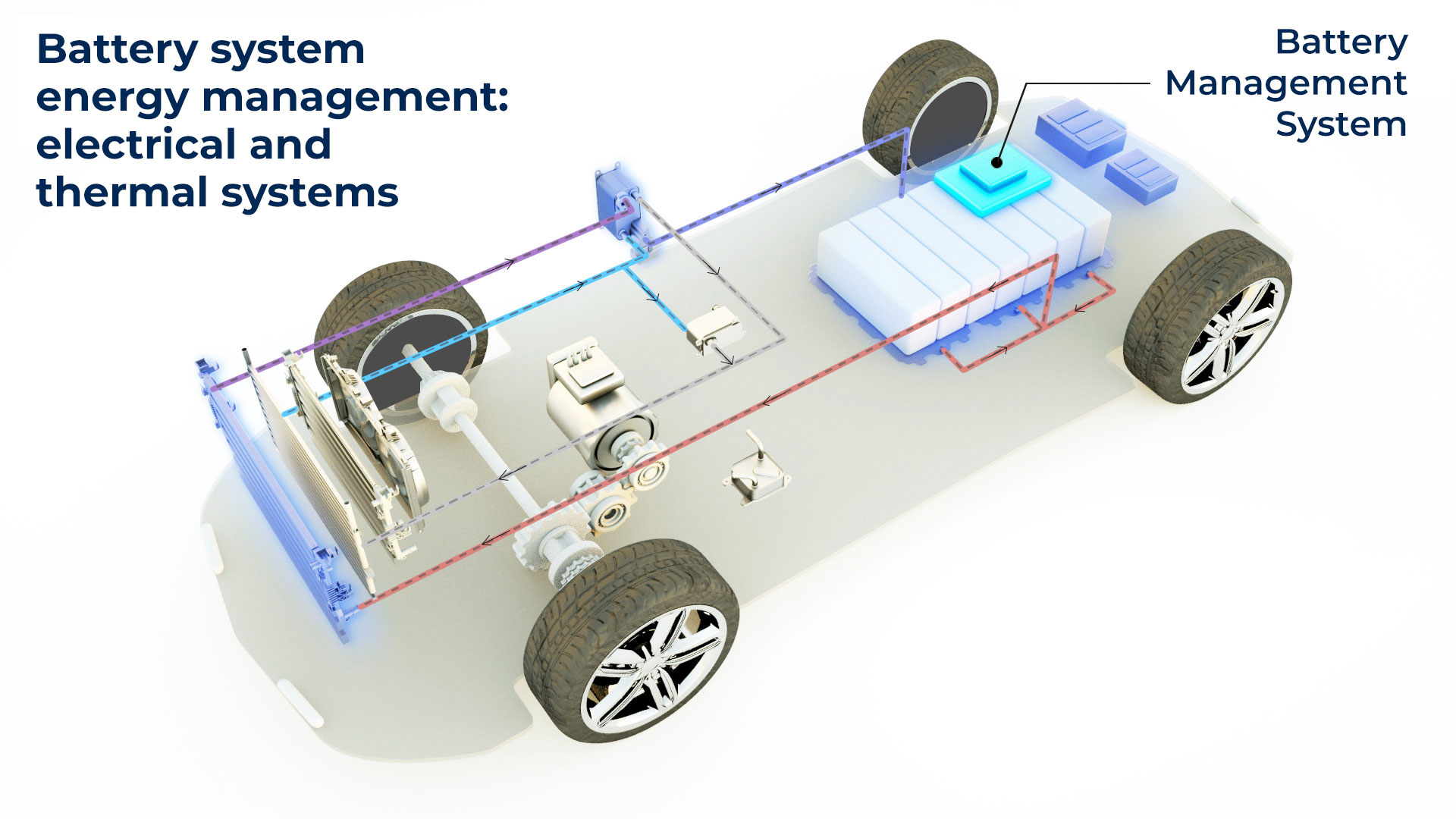Press releases


May 23, 2022
The system reduces wiring harness by 90%, allowing for more flexibility, efficiency, reliability and reduced costs in electric vehicles.
Marelli, a leading global automotive supplier, expands its range of battery management technologies for electric vehicles with a new state-of-the-art Wireless Distributed Battery Management System (wBMS). This technology eliminates the wired physical connections typically needed in other Battery Management System (BMS) architectures, allowing for greater flexibility, increased efficiency, improved reliability and reduced costs, all crucial aspects in electric vehicles. Marelli is making available the solution starting from the second quarter of 2022, to support customer launches in 2024.
The solution eliminates the need of daisy-chain communication and wiring by using wireless technology to enable the communication between batteries and control unit. Compared to previous wired distributed solutions, the new wBMS developed by the company reduces the wiring harness by 90% and simplifies the battery cell construction and installation. In particular, the wBMS reduces complexity in the assembly and grants more flexibility for battery modules placement.
The reduced weight due to connectors removal allows for more energy efficiency, thus increasing the driving range of the vehicle with the same charge. The solution also opens up room in the battery pack to allow larger batteries to fit, guaranteeing versatility, scalability, optimization; ultimately, under the right circumstances, larger batteries also translate to enhanced power performance and again extended vehicle range.
“Wireless BMS is a real game-changer for the automotive industry, eliminating the need for the battery harness, wires and connectors associated with the standard wired BMS systems” – said Dr. Razvan Panati, Head of Power Electronics Technology of Marelli’s Vehicle Electrification Division – “Marelli designed both the wBMS and the Wired BMS with identical base architectures, supported by two different ways of communication and interfaces. In that way our technology can be applied across multiple vehicle platforms with minimal change. This flexibility of the solution guarantees significant reduction in engineering costs and allows Marelli to make this high-end technology affordable for the mass market.”
The Marelli wBMS can be delivered with a highly sophisticated software application layer that uses advanced algorithms based on a proprietary technique so-called “Sensor Fusion”. The algorithms estimate several crucial parameters of each battery cell – including State of Charge, State of Health, State of Power – to ensure a more accurate calculation of the battery overall status, and informs the other components of the powertrain accordingly.
Developing an advanced Battery Management System is a fundamental task for the Electric Vehicles design, since it is a core and smart component in the complex architecture of the EV energy management. The BMS represents the “brain” of the battery, manages the stored power and the capacity of the battery to deliver energy to the rest of the vehicle, checks and delivers information of the battery operating conditions and status, ultimately monitors, optimize and protects the battery.
In addition to this new wireless solution, Marelli already has a consolidated experience in the development of integrated and distributed BMS architectures over the years. These solutions are part of Marelli’s complete portfolio of modular technologies for vehicle energy management, that include a full selection of single components, as well as subsystems, up to solutions for the complete integrated vehicle energy management system. Complemented by proven e-powertrain and thermal design competencies, the battery management capabilities contribute to Marelli’s integrated approach, aimed to assure flexible and customizable solutions to control, manage and optimise the energy balance in electric vehicles.
